Yuval Noah Harari Biography: In an era overflowing with information and chaos, Yuval Noah Harari stands out as a voice of clarity, intellect, and profound insight. A historian, philosopher, and futurist, Harari has transformed the way millions perceive the past, understand the present, and envision the future. With over 40 million books sold in more than 65 languages, he is not only a bestselling author but a global thought leader influencing discussions on artificial intelligence, data privacy, education, democracy, and human evolution. This comprehensive biography explores the life, ideas, and far-reaching impact of Yuval Noah Harari — a man whose words are shaping the 21st-century worldview.
Table of Contents
Early Life and Education
Yuval Noah Harari was born on February 24, 1976, in Kiryat Ata, a town near Haifa in northern Israel. Raised in a secular Jewish family, his father, Shlomo Harari, was a state-employed armaments engineer, and his mother, Pnina, worked as an office administrator. Harari displayed exceptional intellectual curiosity from a young age. At just eight years old, he was placed in a class for gifted children at the Leo Beck Education Center in Haifa.
By age 17, Harari had enrolled at the Hebrew University of Jerusalem to study history and international relations. There, his academic journey deepened, eventually leading him to the University of Oxford, where he earned a Ph.D. in history in 2002. At Oxford, he studied under the mentorship of Steven J. Gunn and specialized in medieval military history.
Academic Career and Shift to Macro-History
Initially focused on niche topics like the history of medieval warfare, Harari’s early academic work was rigorous and detailed. However, he soon transitioned to macro-history — the study of broad historical patterns and processes over millennia. This shift would redefine his career and lead to the creation of one of the most influential books of the 21st century.
Ad- Sapiens: A Brief History of Humankind – By Yuval Noah Harari
Harari is a tenured professor in the Department of History at the Hebrew University of Jerusalem. In lectures and writings, he bridges history, science, and philosophy, creating narratives that are accessible to general readers yet intellectually rich for scholars.
Breakthrough with “Sapiens”
In 2011, Harari published “Sapiens: A Brief History of Humankind” in Hebrew. The book was later translated into English in 2014, with the help of British author and translator John Purcell. The English edition quickly gained worldwide popularity, and it was endorsed by influential figures such as Barack Obama, Bill Gates, and Mark Zuckerberg.
Ad- What Are the Top 10 Brain Foods That Work? (Backed by Real Science!)
“Sapiens” explores the evolution of Homo sapiens from an insignificant African ape to the dominant species on Earth. Harari attributes this ascent to the “Cognitive Revolution”—a turning point around 70,000 years ago when humans developed the ability to believe in collective myths like religion, money, and nations. These shared beliefs, he argues, enabled large-scale cooperation that no other species could match.
The book tackles a wide range of topics: agriculture, capitalism, religion, colonialism, and the scientific revolution. Harari’s unique ability to synthesize complex ideas into compelling narratives helped make “Sapiens” a global bestseller.
“Homo Deus” and the Vision of the Future
Following the success of “Sapiens,” Harari released “Homo Deus: A Brief History of Tomorrow” in 2015. While “Sapiens” explored humanity’s past, “Homo Deus” examined the potential future of our species. Harari contemplates a world where humans transcend biology through genetic engineering, artificial intelligence, and nanotechnology.
Ad- How to Encourage Kids to Embrace Digital Detox in the Digital Age
He presents a provocative thesis: just as Homo sapiens replaced other human species, we might be on the verge of creating “post-human” beings. The book explores themes like immortality, happiness engineering, and techno-humanism. Though speculative, “Homo Deus” draws on existing scientific trends and philosophical questions that are increasingly relevant.
“21 Lessons for the 21st Century” and Present-Day Realities
In 2018, Harari published “21 Lessons for the 21st Century,” a collection of essays addressing current global challenges. Unlike the sweeping historical or futuristic scope of his previous works, this book zeroes in on present-day concerns: disinformation, terrorism, climate change, immigration, and the future of work.
Ad- What Is Skin Cycling? Step-by-Step Skin Cycling Routine for Beginners
Harari argues that clarity, not intelligence, is the most needed skill today. The book is a guide for navigating the complexities of the modern world. Each chapter deals with urgent questions: What should we teach our children? How can societies remain cohesive amid technological disruptions? Can liberal democracies survive the digital age?
New Works and Continued Influence
Harari has since released additional works, including the children’s adaptation “Sapiens: A Graphic History” and the recently published “Nexus: A Brief History of Information Networks from the Stone Age to AI” (2024). The latter explores the role of information in shaping human civilization, from the earliest cave paintings to the age of big data and surveillance capitalism.
He also co-founded Sapienship, a social impact company, with his husband and manager, Itzik Yahav. The organization aims to promote global dialogue on pressing issues like climate change, technological disruption, and ethical governance.
Personal Life and Beliefs
Openly gay, Harari married Itzik Yahav, who has been instrumental in managing his professional affairs. They live in a moshav (a type of cooperative agricultural community) outside Jerusalem.
A committed practitioner of Vipassana meditation, Harari spends 1-2 hours daily in silent contemplation and attends long meditation retreats annually. He credits his meditation practice with sharpening his focus, enhancing self-awareness, and informing his philosophical perspectives.
Though secular, Harari deeply respects religious traditions and analyzes them through a historian’s lens. He is critical of blind faith but acknowledges the role of religion in building social cohesion and shared morality.
Views on Technology, AI, and the Future
One of Harari’s most influential areas is his critique of dataism — the belief that data and algorithms can explain all phenomena, including human behavior. He warns that unchecked technological power, especially in the hands of corporations and governments, can lead to unprecedented levels of control.
He is a strong advocate for the ethical regulation of artificial intelligence and biotechnology. Harari often appears in forums like the World Economic Forum at Davos and interviews with tech leaders, cautioning them about the societal consequences of their innovations.
Social Followers
Global Recognition and Legacy
Harari’s influence transcends academia. He has spoken at the United Nations, the World Economic Forum, TED stages, and met with global leaders and celebrities. His interviews and podcasts attract millions of listeners worldwide.
His books are integrated into school curricula, university syllabi, and corporate training programs. “Sapiens” alone has been praised for making history exciting and accessible to a new generation of readers.
Despite some academic criticism for oversimplifying complex historical events, Harari’s talent for synthesizing interdisciplinary knowledge has earned him widespread respect and admiration.
Final Thoughts: Why Harari Matters
In a rapidly changing world, Yuval Noah Harari offers more than just historical insight — he provides a framework for critical thinking. His works challenge us to ask deep questions: Who are we? Where are we headed? And what kind of future do we want to build?
With a voice that is both rational and reflective, Harari represents a new kind of public intellectual — one who bridges the past with the future, science with spirituality, and knowledge with wisdom. As technology continues to redefine our existence, voices like Harari’s will remain crucial in guiding humanity toward a more thoughtful, ethical, and sustainable future.
Books Written By- Yuval Noah Harari


Credible Sources: Yuval Noah Harari Biography
- Official Website of Yuval Noah Harari
(Primary source for biography, works, and latest updates) - The Guardian – “Yuval Noah Harari: the philosopher-tech guru”
- World Economic Forum – Talks and Interviews
- TED Talks – Yuval Noah Harari
- Harvard Business Review – “Yuval Noah Harari: What will the future be like?”
(Cited in industry discussions, available via HBR or academic portals) - YouTube – Channel Interviews (Lex Fridman Podcast)

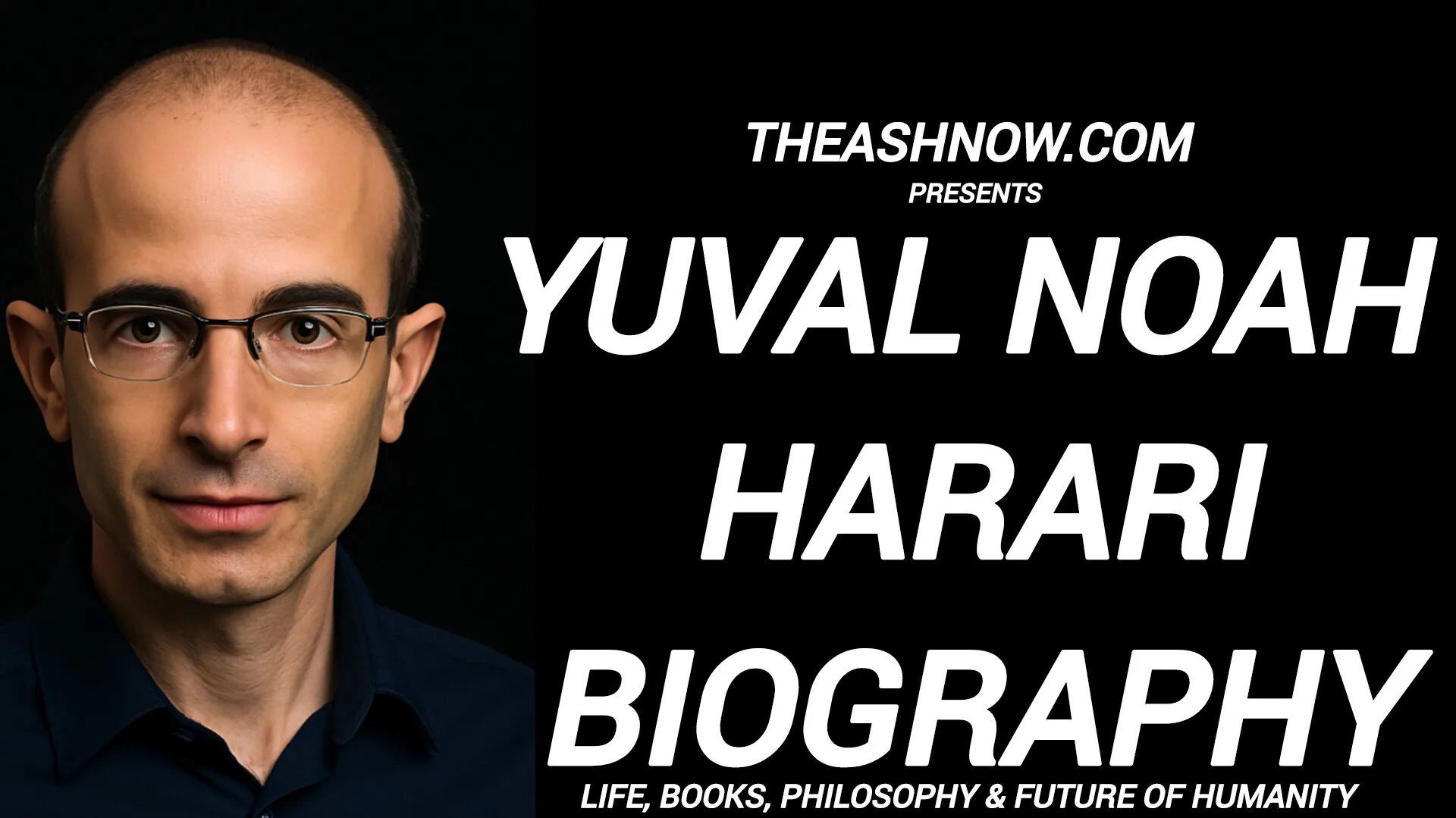
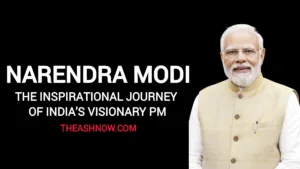

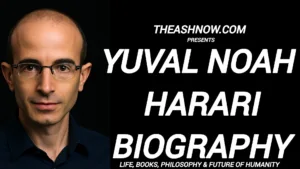
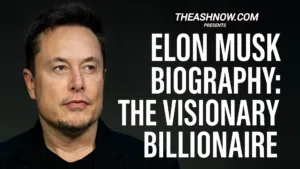


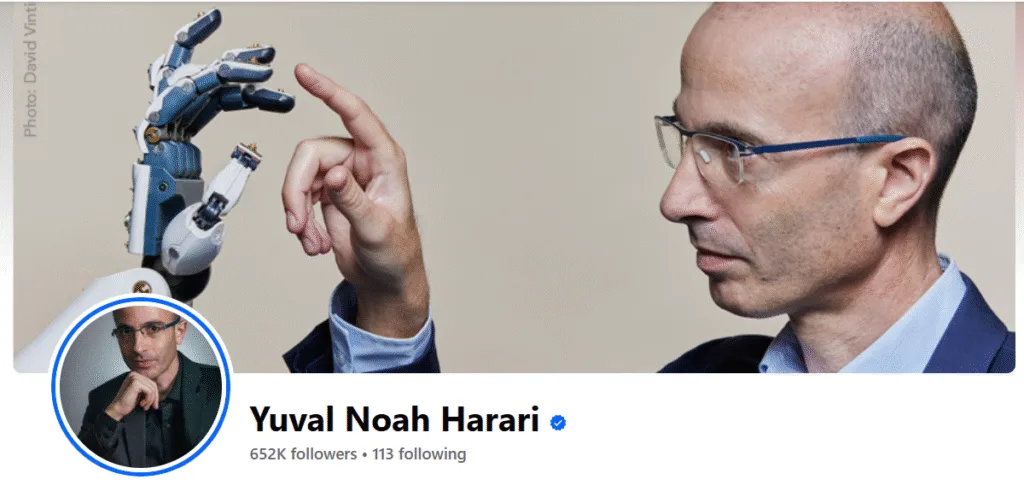
1 thought on “Yuval Noah Harari Biography: Life, Books, Philosophy & Future of Humanity”